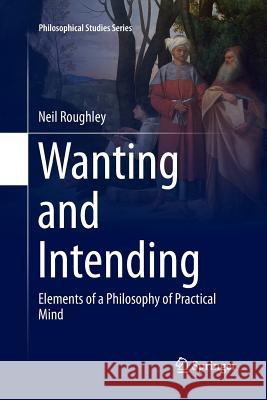Wanting and Intending: Elements of a Philosophy of Practical Mind » książka
topmenu
Wanting and Intending: Elements of a Philosophy of Practical Mind
ISBN-13: 9789402413403 / Angielski / Miękka / 2018 / 364 str.
Kategorie BISAC:
Wydawca:
Springer
Seria wydawnicza:
Język:
Angielski
ISBN-13:
9789402413403
Rok wydania:
2018
Wydanie:
Softcover Repri
Ilość stron:
364
Waga:
0.54 kg
Wymiary:
23.39 x 15.6 x 2.03
Oprawa:
Miękka
Wolumenów:
01
Dodatkowe informacje:
Wydanie ilustrowane











